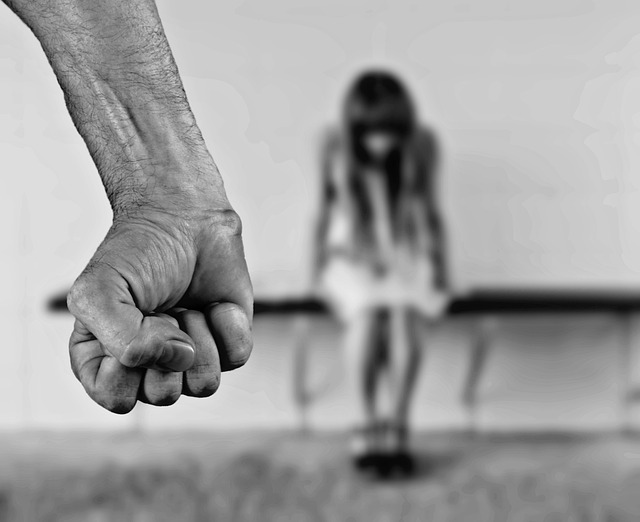Louisville, KY faces a unique challenge with clergy abuse, requiring specialized legal services to empower survivors. Traditional aid fails to address trauma and cultural sensitivities. Survivor-centered legal services create safe spaces, offering confidentiality, trauma-informed practices, and non-judgmental environments. These services empower individuals to come forward, seek justice, and heal, revolutionizing Louisville, KY's approach to clergy abuse cases.
In Louisville, KY, the issue of clergy abuse has left profound scars on countless individuals. This article delves into the critical need for survivor-centered legal services within the community. We explore the unique challenges faced by victims of clerical abuse and emphasize the importance of tailored legal aid. Through understanding the context of Louisville, we advocate for creating safe environments where survivors can share their stories and access effective legal strategies. Ultimately, empowering survivors through legal action is key to healing and justice in this sensitive matter.
Understanding Clergy Abuse in Louisville, KY

In Louisville, KY, clergy abuse has emerged as a pressing issue that demands tailored legal services centered on survivors. The city’s vibrant religious community, while diverse and welcoming, is not immune to instances of misuse of power within spiritual leadership. Survivors of clerical abuse often face unique challenges, requiring specialized support to navigate complex legal processes. Understanding the dynamics of such abuse in Louisville involves recognizing the trust inherent in pastoral relationships and how this can be exploited.
Louisville’s diverse landscape encompasses various religious institutions, each with its own set of rules and norms regarding sexual or emotional misconduct by clergy members. Local survivors may struggle with reporting such issues due to cultural sensitivities, fear of retaliation, or a lack of awareness of available resources. Legal services that prioritize survivor well-being can play a pivotal role in empowering individuals to come forward, seek justice, and heal from the trauma caused by clergy abuse in Louisville, KY.
The Need for Survivor-Centered Legal Aid

In Louisville, KY, the need for survivor-centered legal services is starkly evident, particularly regarding clergy abuse cases. Many survivors face unique challenges when pursuing justice due to the sensitive nature of their experiences and the power dynamics involved in such situations. Traditional legal aid often fails to address the specific trauma and fears that come with reporting and litigating against religious institutions and figures. Survivor-centered legal services aim to change this by providing a safe, supportive environment for victims to share their stories and seek redress.
By focusing on the needs of survivors rather than solely on the legal aspects of the case, these specialized services can enhance the likelihood of successful outcomes while also ensuring that individuals receive holistic care. In Louisville, where clergy abuse has been a significant issue, implementing survivor-centered practices is crucial for fostering healing and creating an environment where victims feel empowered to come forward and seek justice.
Creating Safe Spaces for Survivors to Share

In Louisville, KY, creating safe and supportive spaces is paramount when offering legal services to survivors of clergy abuse. Many survivors face unique challenges when coming forward, including fear of retraumatization, stigma, and doubt from others. A sensitive and understanding environment encourages them to share their stories and pursue justice. This involves ensuring confidentiality, using trauma-informed practices, and fostering a non-judgmental atmosphere.
By establishing these safe spaces, survivors can feel empowered to discuss their experiences openly, which is crucial for building strong legal cases. It also allows them to connect with others who have faced similar situations, providing a sense of community and validation. This supportive network is integral to the healing process and enhances their overall well-being as they navigate the legal system in Louisville, KY.
Legal Strategies to Support Abuse Victims

In Louisville, KY, survivor-centered legal services are transforming the way victims of clergy abuse seek justice. These innovative strategies prioritize the well-being and autonomy of survivors, ensuring they have access to skilled attorneys who understand the unique challenges they face. Legal teams employ a range of tactics, from confidential case evaluations to strategic litigation, aimed at holding perpetrators accountable while providing compassionate support throughout the legal process.
Survivors are empowered through education about their rights and options, allowing them to make informed decisions about how to proceed. This holistic approach addresses not only the legal aspects of abuse but also the emotional and psychological trauma often associated with these experiences. By fostering a safe and non-judgmental environment, Louisville’s survivor-centered legal services offer a crucial resource for those seeking healing and justice in the face of clergy abuse.
Empowering Survivors Through Legal Action

In Louisville, KY, survivors of clergy abuse are increasingly recognizing the power of legal action as a means of empowerment and healing. Taking on the institutions and individuals responsible for their suffering can be an incredibly transformative experience. Legal services tailored to the specific needs of survivors offer a safe space to navigate complex systems and assert their rights. These services provide crucial support, ensuring that victims feel heard, respected, and supported throughout every step of the process.
By pursuing legal action, survivors not only seek justice but also contribute to creating a safer environment for future generations. Holding accountable those who have exploited their positions of power can lead to significant changes in institutional policies and practices, helping to prevent similar abuses from occurring. This proactive approach empowers survivors to take back control and play an active role in shaping a more secure and supportive community, especially within the religious landscape of Louisville, KY.



